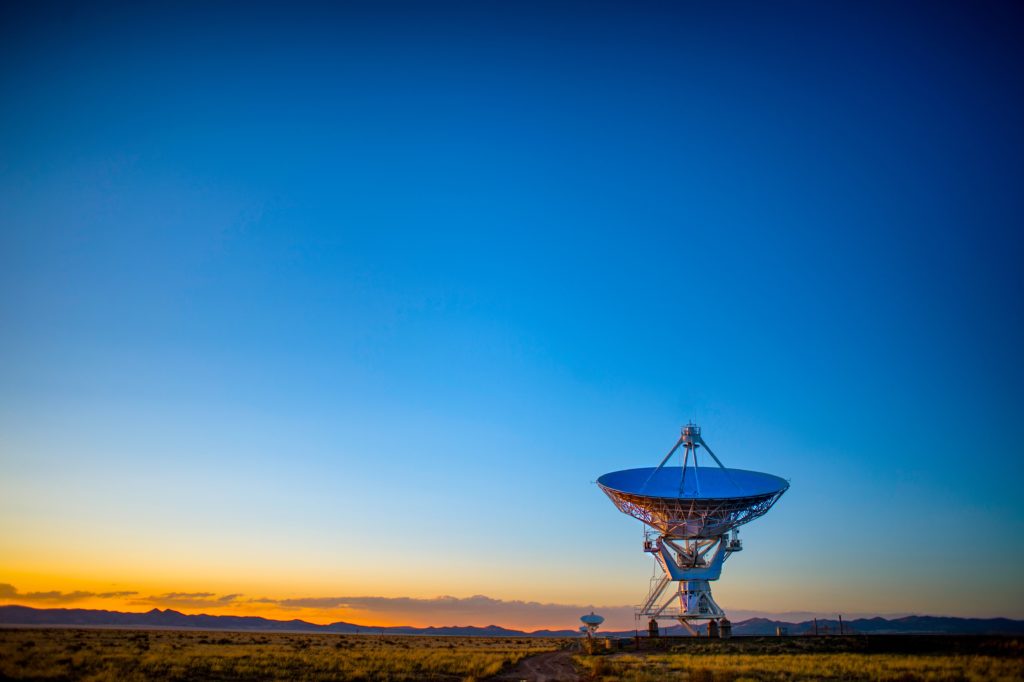
Are science and religion enemies? Many scientists obviously believe so. Richard Dawkins, one of the famed “new atheists” views belief in God as a delusion (that’s right – you aren’t just wrong or old-fashioned to believe in God, you are deluded!). It makes no more sense to believe in God than it does to believe in a flying spaghetti monster, or a teapot circling the sun between the Earth and Mars (Betrand Russell’s flying teapot), or to believe in an invisible dragon living in your garage (a la Carl Sagan).
It isn’t just on the side of science that this perceived animosity exists. Religious people are just as likely to dismiss science with all its fancy book-learning and new-fangled theories and hypotheses. Many Christians, including (lamentably) many evangelicals, maintain a profoundly anti-intellectual anti-scientism.
This is all most unfortunate and unnecessary. Science as we know it emerged from within a Christian context and worldview. The first and greatest of modern scientists were also deeply committed Christians. It was their understanding of the world as a well-ordered and comprehensible place, the handiwork of a rational God, that made science itself possible. It isn’t accidental that science emerged where and when it did.
While it is still quite popular to draw up sides in this imagined war between science and religion, some wise souls continue to urge all parties to lower their weapons. A recent phys.org article highlights one such organization, the John Templeton Foundation. The Templeton Foundation is “a philanthropic organization named after the American Presbyterian who made his fortune on Wall Street, and who set on “seeking proofs of divine agency in every branch of science”, as The Economist put it.”
The Templeton Foundation gives a prize each year recognizing outstanding contributions to “affirming life’s spiritual dimension.” This year the award went to Marcelo Gleiser, a Brazilian theoretical physicist. Gleiser has taught at Dartmouth College in New Hampshire since 1991.
Gleiser is clearly a brilliant man.
“The physicist focuses on making complex subjects accessible. He has written on climate change, Einstein, hurricanes, black holes, the human conscience—tracing the links between the sciences and the humanities, including philosophy.
The author of five English-language books and hundreds of blog and press articles in the US and Brazil, Gleiser has also explored in depth how science and religion both try to respond to questions on the origins of life and the universe.
He is also an agnostic, and that in the true sense of the word. He doesn’t know whether or not there is a God. But he is no atheist. An agnostic doesn’t know whether there is a God, while an atheist denies the existence of God outright. Gleiser believes that atheism is itself a profoundly unscientific position. And he’s right.
“Atheism is inconsistent with the scientific method.
“Atheism is a belief in non-belief. So you categorically deny something you have no evidence against.
“I’ll keep an open mind because I understand that human knowledge is limited.

Gleiser understands something that many other smart people obviously don’t – there are limits to the kind of knowledge which science can obtain. The scientific method is a wonderful tool for understanding how the natural world works. It is a way of observing the natural world, making predictions about the natural world, and testing those predictions about the natural world. It can be and has been harnessed for tremendous good.
But there are also what should be obvious limitations to science. Science can’t say anything meaningful about what lies beyond the natural world. Science can’t meaningfully address questions of ethics (what should be, ought to be, what is right/wrong), science can’t speak to what is true (beyond laws of nature), science can’t speak to beauty, to purpose, to meaning. Science can’t account for ultimate origins, nor ultimate destinations. Science is a very important tool for a very limited subset of human knowledge, and for none of the most important of those areas of knowledge.
One area where scientists frequently overstep their bounds is the existence of God. As Gleiser articulates “Atheism is a belief in non-belief. So you categorically deny something you have no evidence against.” Atheism is the belief there is no God; it is a universal negative. This is something that science cannot demonstrate.
Consider the difficulty of demonstrating a universal negative. I love Ronald Nash’s illustration of this (paraphrased and retold by me):
Imagine you want to demonstrate the truthfulness of the proposition: There is gold in Alaska. What would it take to prove this positive assertion? All you would need to do is dig up one microscopic fleck of gold. But what would it take to prove the universal negative proposition: There is no gold in Alaska? You would need to dig up all of Alaska and sift all of the soil without discovering any gold. But how could you ever know you had accomplished this task? How deep would you need to dig? All the way to the mantle? And how could you be certain that you are detecting the presence of gold? Perhaps you missed a lump caught in a larger boulder? Perhaps it is in such a small quantity that you simply aren’t detecting it. In short, it is impossible to prove this kind of universal negative proposition.
Add to this that the tools of science can only look at and measure the natural world and could never begin to look at or measure the supernatural, and the problem is all the greater. Science is simply incompetent to speak to metaphysical concerns such as the existence of God.

On top of this, many scientists who most confidently espouse their non-belief have no background or training in these matters. It’s much akin to an athlete or actor confidently pontificating about political or economic matters.
(John) Lennox quotes another Nobel Laureate, physicist Richard Feynman, who said: “Outside his or her field, the scientist is just as dumb as the next guy.” Another Nobel Laureate, Baron Rees, said much the same about his friend Stephen Hawking’s pronouncements on philosophy and religion. He once told the Guardian newspaper, “I know Stephen Hawking well enough to know that he has read little philosophy and less theology, so I don’t think his views [on those subjects] should be taken with any special weight.
https://www.christianpost.com/voice/can-science-explain-everything.html
Anyone who claims that science proves there is no God, or that science leads one even in the direction of believing there is no God, doesn’t know what they are talking about. They are profoundly confused about what science is, what science can do. They need to deepen their understanding of the limits of the kind of knowing science can provide. In short, they need a philosophy of science.
More wisdom from Marcelo Gleiser:
“Science can give answers to certain questions, up to a point.
“This has been known for a very long time in philosophy, it’s called the problem of the first cause: we get stuck.
“We should have the humility to accept that there’s mystery around us.
“When you hear very famous scientists making pronouncements like … cosmology has explained the origin of the universe and the whole, and we don’t need God anymore. That’s complete nonsense.
“Because we have not explained the origin of the universe at all.